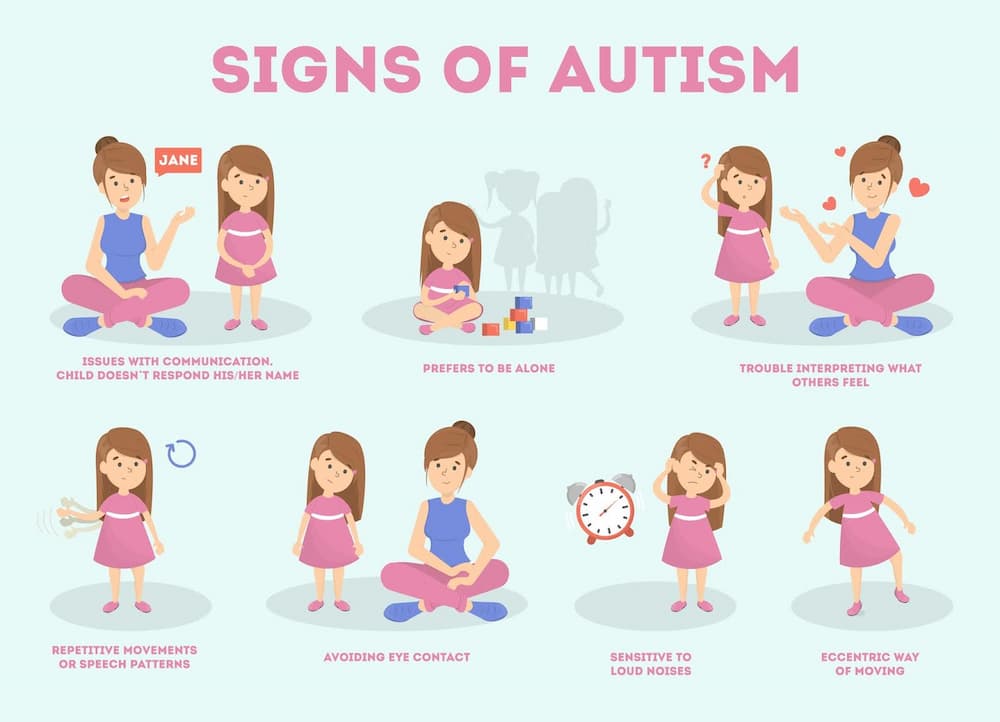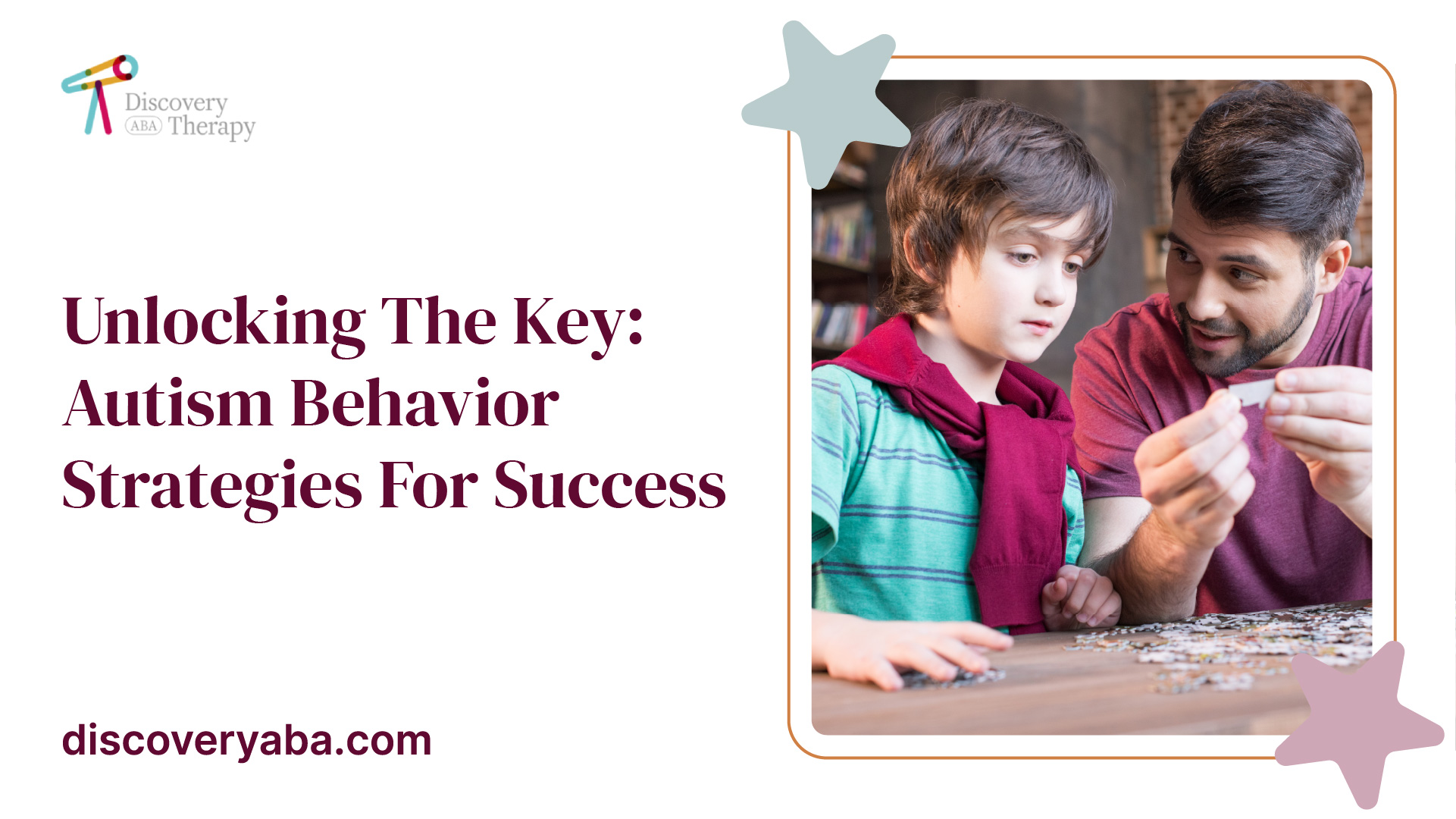Creating strong social bonds with help from an Autism Therapist's insights
Creating strong social bonds with help from an Autism Therapist's insights
Blog Article
Secret Indications and Symptoms to Identify in Individuals With Behavioral Autism
When you experience a person with behavioral autism, recognizing essential indications and symptoms is crucial. You may observe obstacles in social interactions and interaction, along with a solid need for regimens. In addition, sensory level of sensitivities can result in overwhelming experiences. Recognizing these qualities can enhance your assistance and interventions, yet there's more to discover regarding just how these behaviors show up in everyday situations. Let's discover what these signs truly look like.
Challenges in Social Communications
When you interact with someone on the autism spectrum, you could see they struggle with social signs and interaction. These obstacles can make social communications really feel frustrating for them.
In addition, you might discover that they prefer routines and acquainted setups, which can restrict their willingness to participate in new social scenarios. When they do engage, they might chat concerning their rate of interests in fantastic information without seeing if you're interested. This can lead to one-sided discussions that leave you feeling detached. Recognizing these obstacles can aid you approach interactions with compassion and persistence, promoting an extra comfortable setting for both of you.
Trouble With Verbal and Non-Verbal Interaction

Recognizing these signs is important, as it helps you much better support and involve with people on the autism spectrum. By comprehending their interaction obstacles, you can foster much more significant connections and provide a more helpful setting.
Recurring Actions and Regimens
Communication difficulties often come with other signs of autism, such as repetitive actions and a solid preference for routines. You might discover that individuals with autism usually participate in particular, repetitive actions, like hand-flapping, rocking, or repeating expressions. These behaviors can give comfort and a sense of control in a frequently overwhelming globe.
Routines are just as essential; numerous individuals thrive when they adhere to a structured schedule. You may discover that adjustments to these routines can lead to significant distress. As an example, if they have an everyday routine of eating morning meal at a specific time or following a particular course to school, any kind of disturbance can trigger anxiety.
Acknowledging these patterns helps you recognize their actions and offer assistance. By accommodating their requirement for regular and enabling recurring actions, you can produce a much more comfortable setting that reduces their challenges.
Sensory Sensitivities

Usual Sensory Triggers
Sensory level of sensitivities can substantially affect everyday life for individuals with autism, as certain stimulations often set off overwhelming reactions. Common sensory triggers consist of loud noises, intense lights, and strong scents. Comprehending these triggers can help you handle your environment much better.
Behavioral Actions Explained
Understanding your behavior responses to sensory level of sensitivities is crucial, as they frequently expose exactly how you interact with the world. You may additionally discover yourself seeking certain sensory experiences, like deep pressure or peaceful atmospheres, to aid ground on your own. Identifying these patterns assists you recognize your demands better and can guide how you connect them to others.
Coping Strategies Review
Acknowledging your sensory sensitivities is simply the primary step; now it's time to check out coping techniques that can aid you handle those experiences successfully. Beginning by creating a sensory toolkit tailored to your requirements. This could consist of noise-canceling headphones, fidget playthings, or relaxing scents. Establishing a structured routine can likewise provide predictability, lowering stress and anxiety around sensory overload. Take breaks in a quiet space to collect yourself when you really feel overwhelmed. Practicing mindfulness techniques such as deep breathing can aid ground you in the minute. Furthermore, connect your demands with those around you; having encouraging family and friends can make a significant difference. Bear in mind, discovering what functions ideal for you may require time, so be patient and open to trying new strategies.
Limited Rate Of Interests and Focus
While many people establish like this a large range of rate of interests, those with autism usually demonstrate limited rate of interests and an extreme focus on certain topics. You might observe that someone with autism can invest hours delving right into their favorite subject, whether it's a certain sort of train, a particular movie, or a scientific principle. This intense focus isn't simply a pastime; it can become a main component of their identification and social communications.
You may discover that discussions rotate around these rate of interests, and they might have a hard time to involve in broader subjects. By understanding and recognizing these limited interests, you can promote a supportive environment where they feel valued and recognized, permitting for more meaningful connections and communications.
Psychological Regulation Troubles
People with autism often deal with challenges in emotional law, which can be affected by their extreme concentrate on particular rate of interests. You could see that when a person is deeply taken part in a recommended activity, they can experience recommended you read solid emotions, whether enjoyment or disappointment. When things don't go as intended., this strength occasionally makes it hard for them to move gears or manage their sensations - Autism Spectrum Therapies.

Variability in Developmental Milestones
When it comes to developing turning points, you'll observe that people with autism commonly reveal a wide variety of variability. You may see a kid succeed in language abilities but struggle with social communications.
It's vital to identify that each individual's trip is one-of-a-kind. Observing these patterns can assist you comprehend their strengths and requires much better.
Regularly Asked Inquiries
Just How Is Autism Diagnosed in Kid and Grownups?
To diagnose click to read more autism in grownups and children, professionals review actions, communication abilities, and social communications. If a private fulfills the requirements for autism range disorder., they typically use standardized tests, interviews, and observations to figure out.
Exist Various Kinds of Autism Range Disorders?
Yes, there are various kinds of autism range problems, including Asperger's syndrome and pervasive developing disorder-not or else specified. Each kind varies in extent and features, so recognizing these distinctions can aid you far better assistance people with autism.
What Therapies Are Efficient for Individuals With Autism?
When considering effective therapies for people with autism, you'll locate choices like Applied Habits Analysis, speech treatment, and work-related therapy. Each approach can help improve interaction, social skills, and day-to-day operating customized to specific requirements.
Can Individuals With Autism Lead Independent Lives?
Yes, people with autism can lead independent lives. With the appropriate support, skills training, and sources, you can assist them develop self-sufficiency, handle daily tasks, and grow in various environments, cultivating their self-reliance.
Just How Can Family Members Support Liked Ones With Autism?
You can sustain your liked ones with autism by producing a structured environment, motivating their rate of interests, exercising persistence, promoting interaction, and promoting social abilities. Celebrate their accomplishments, regardless of how small, and build a helpful community.
Although several people on the autism spectrum can use and understand language, they frequently deal with significant difficulties with both non-verbal and spoken communication. Acknowledging these indicators is crucial, as it helps you much better support and involve with people on the autism spectrum. You could see that people with autism typically engage in particular, repetitive activities, like hand-flapping, shaking, or repeating expressions.Sensory sensitivities can significantly affect daily life for people with autism, as specific stimulations often activate overwhelming reactions.When it comes to developing milestones, you'll observe that individuals with autism commonly reveal a broad variety of irregularity.
Report this page